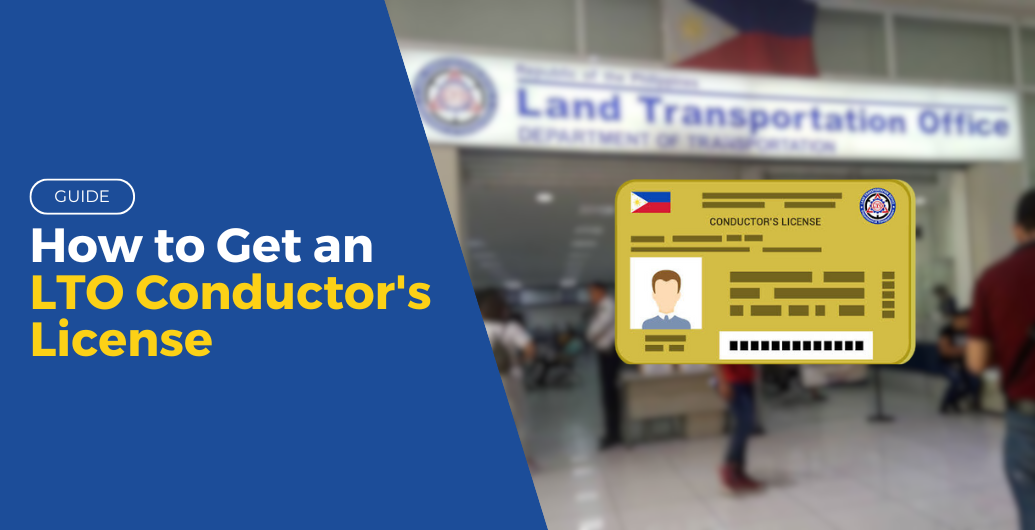Estimated reading time: 5 minutes
Obtaining a conductor’s license is essential for those who wish to work as bus conductors in the Philippines. Issued by the Land Transportation Office (LTO), this license is a requirement under the Land Transportation and Traffic Code. This guide will provide you with a comprehensive overview of what a conductor’s license is, its benefits, the qualifications and requirements for obtaining one, and the steps involved in the application process.
Table of contents
- What is an LTO Conductor’s License (CL)?
- What is the Difference Between a Driver’s License and a Conductor’s License?
- What is the Conductor’s License Seminar?
- Benefits of an LTO Conductor’s License
- Qualifications for LTO Conductor’s License
- Requirements for an LTO Conductor’s License
- Procedures for Securing an LTO Conductor’s License
- Validity and Fees
- Important Reminders
- Conclusion
What is an LTO Conductor’s License (CL)?
A conductor’s license, also known as a conductor’s permit, is a specific type of license issued by the Land Transportation Office (LTO) in the Philippines. It is designed for bus conductors who assist drivers in collecting fares, checking and issuing tickets, and ensuring the safety of passengers and cargo. Similar to a professional driver’s license, a conductor’s license is a mandatory requirement for those seeking employment in this role.
Conductor License Meaning and Responsibilities
The conductor license, or conductor’s license, allows qualified individuals to legally perform tasks such as:
- Collecting and issuing tickets, passes, and fares.
- Verifying the validity of tickets.
- Assisting passengers, including the elderly, sick, disabled, and injured.
- Ensuring safety procedures are followed before departure.
- Signaling drivers to stop or proceed when passengers disembark.
- Checking boarding equipment and announcing routes.
- Resolving complaints and requests from passengers.
- Assisting in emergency situations or accidents.
Employment Opportunities with a Conductor’s License
A valid conductor’s license can be used to secure work in various capacities, such as:
- Bus conductor
- Bus inspector
- Cable car conductor
- Passenger car conductor
- Railway passenger train guard
- Freight conductor on the road
- Public transportation ticket inspector
- Train conductor
- Transport conductor
What is the Difference Between a Driver’s License and a Conductor’s License?
A driver’s license permits individuals to operate motor vehicles, such as cars, trucks, and motorcycles. In contrast, a conductor’s license is exclusively for bus conductors and other similar roles. It does not grant the holder permission to drive but rather to assist drivers and manage passenger-related duties. Both licenses are issued by the LTO, but they serve distinct purposes and cannot be used interchangeably.
What is the Conductor’s License Seminar?
The Conductor’s Theoretical Course (CTC) is an eight-hour seminar required for those applying for a conductor’s license (CL). Hosted by the Land Transportation Office (LTO) and carried out at Driver Education Centers (DECs) in selected LTO offices, the CTC covers topics to educate conductors on their specific tasks, duties, responsibilities, and obligations. Completing the CTC and passing the exam will earn aspiring conductors a CTC certificate, a mandatory requirement for obtaining a conductor’s license.
Benefits of an LTO Conductor’s License
Obtaining a conductor’s license offers several benefits, including:
- Avoiding penalties and legal consequences of driving without or with an expired license.
- Providing a valid photo ID for use in public and private settings.
- Simplifying the renewal process compared to obtaining a new license.
- Offering a license validity period of five to ten years, depending on the license type.
- Ensuring conductors are regulated within the industry.
Qualifications for LTO Conductor’s License
To qualify for a conductor’s license in the Philippines, applicants must meet the following criteria:
- Be at least 18 years old.
- Be physically and mentally fit, and free of contagious diseases.
- Be able to read and write in Filipino and/or English.
- Pass the theoretical examination for new applicants and those with licenses not renewed for over two years.
- Have no unresolved traffic violations.
- Complete the Conductor’s Theoretical Course (CTC) at the LTO Driver’s Education Center (DEC).
- Not be alcoholics or drug users.
- Be clean, neat, and presentable.
Requirements for an LTO Conductor’s License
Applicants must submit the following documents:
- A properly filled out Application for Permits and Licences (APL) form.
- An original medical certificate from an LTO-accredited medical clinic.
- Proof of identification (e.g., birth certificate, Philippine Identification Card, passport).
- Clearances (e.g., National Bureau of Investigation clearance, police clearance).
- Taxpayer’s Identification Number (TIN).
- Certificate of Completion of the Conductor’s Enhancement Program (CEP) for renewal.
- Additional documents for changes in personal information, such as marriage contracts or barangay clearance.
Also Read: GUIDE: LTO Practical Driving Course
Procedures for Securing an LTO Conductor’s License
In-Person Application
- Locate the nearest LTO Licensing Center, Licensing Extension Office, or District Office.
- Check document authenticity at the Customer Service Counter.
- Obtain and fill out the Conductor’s License Application Form.
- Wait in the queue and secure a number.
- Submit documents and application form to the Evaluator.
- Proceed to the Photo/Signature Area for picture and signature capture.
- Pay the application fee at the cashier and keep the Official Receipt (OR).
- Take the written exam and, upon passing, pay the license fees.
- Present the OR at the Releasing Counter to obtain the temporary or card type license.
Online Application
- Register at the LTO Land Transportation Management System (LTMS) portal.
- Complete the online registration process and verify via email.
- Log in to the LTMS portal and access the licensing application form.
- Fill out the form and apply changes.
- Select the type of license, application details, and preferred appointment date.
- Visit the chosen LTO office for biometric capture and license issuance.
Validity and Fees
- The conductor’s license is valid for five years, extendable to ten years for those with no violations.
- Fees include Php 585.00 for the license, Php 100.00 application fee, and Php 67.63 computer fee, totaling Php 752.63.
- Additional penalties apply for late renewals, ranging from Php 75.00 to Php 225.00.
- Other fees include Php 225.00 for replacement, Php 100.00 for certification, and Php 30.00 for clearance.
Also Read: GUIDE: MVUC LTO (Meaning, Computation, and more!)
Important Reminders
- Ensure all documents are complete and authentic before applying.
- Attend the Conductor’s Theoretical Course (CTC) and pass the exam.
- Renew licenses on time to avoid penalties and additional fees.
- Always present a valid photo ID and proof of identity.
Conclusion
Obtaining an LTO conductor’s license is essential for bus conductors in the Philippines. It ensures that they are qualified to assist drivers and ensure passenger safety. The process involves meeting specific qualifications, submitting required documents, and following the application procedures either in-person or online. With a valid conductor’s license, individuals can pursue various employment opportunities and contribute to the safe and efficient operation of public transportation.
Keep Reading: GUIDE: LTO Theoretical Driving Course



Leave a Reply